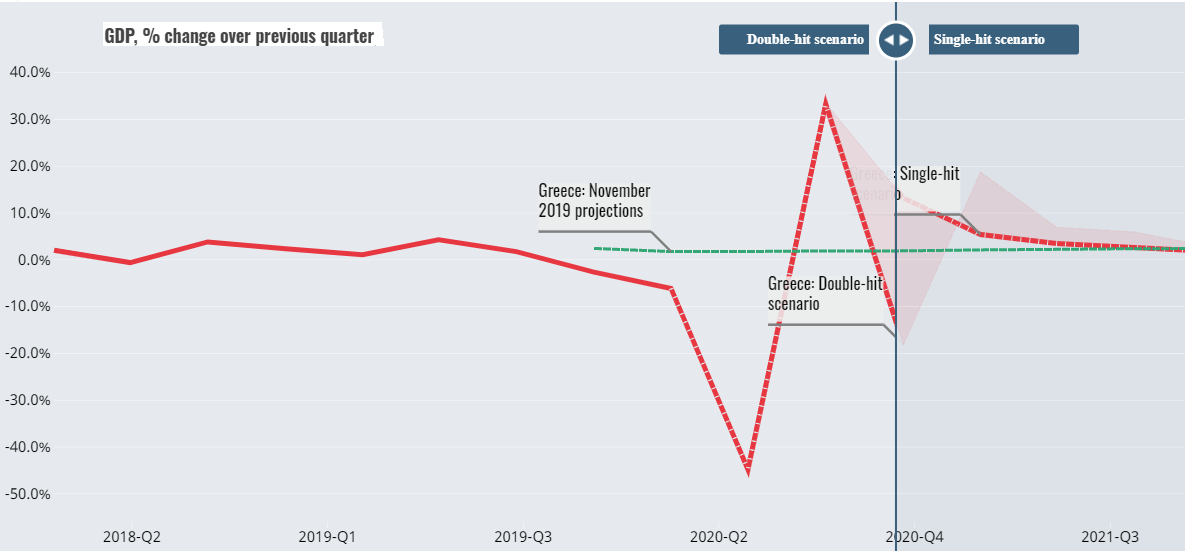OECD Revises Covid-19 Outlook for Greece
Like most of the world’s economies, Greece too has been hard hit by the coronavirus pandemic, but the Organization for Economic Co-operation and Development (OECD) has revised its previous forecast, estimating now that the country’s economy will contract at a smaller rate this year compared to the eurozone average.
OECD analysts cite Greece’s prompt and effective Covid-19 response as the reason for the new estimate but go on to add that growth in 2021 is set to be slower than government expectations.
In its most recent report, the OECD presents two scenarios: the first assuming there is no second virus wave in which case GDP is projected to fall by 8 percent in 2020 against 9.1 percent in the eurozone and record 4.5 percent growth in 2021 compared to 6.5 percent in the eurozone.
Should there however be a second coronavirus outbreak in Europe in the second half of 2020, the Greek economy is expected to shrink by 9.8 percent compared to 11.5 percent in the eurozone and grow by 2.3 percent in 2021 against 3.5 percent (eurozone).
Several studies by the European Commission and the International Monetary Fund (IMF) had at the start of the Covid-19 crisis found Greece to be among the most vulnerable eurozone economies due to its dependence on tourism.
Indicatively, then the OECD had forecast an annual reduction in economic activity as a proportion of GDP by 35 percent, compared to an average 15 percent in other OECD member states.
Now, OECD analysts note that thanks to Greece’s successful response Covid-19 did not burden its health system. They added that they expect support measures to continue into 2021, noting that in a worst-case scenario, additional measures may be needed.

Source: OECD (2020), Real GDP forecast and Unemployment rate forecast (indicators). © OECD Terms & Conditions Divergences for 2019-Q4 are due to data revisions and changes in the base years in country national accounts.
Lastly, with regard to tourism, the OECD report suggests that setting a “clear timeline” for the resumption of travel could lead to an increase in bookings later in the season, adding that the health crisis has weakened the sector’s medium-term prospects and measures should be introduced to help businesses and their employees upgrade their activities and their skills and turn to areas that promise better opportunities.






